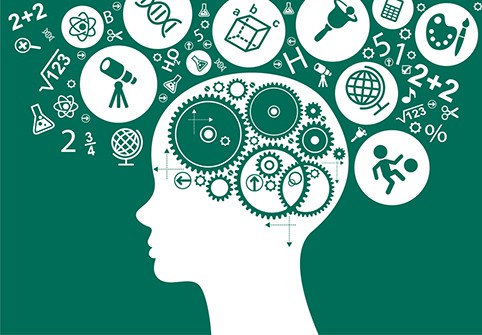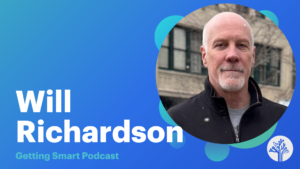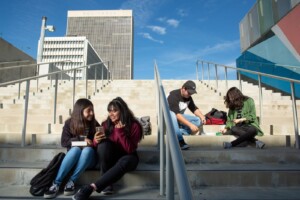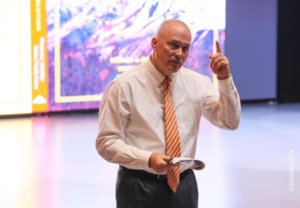Changing the Mindset of Education: Every Learner is Unique

Arina Bokas & Rod Rock
Imagine a student who hears things once and knows them forever. She is a good reader. She is self-aware and can articulate her learning challenges and successes. Despite the fact that the student is smart, she struggles on written work and in group projects. How does our school system help encourage a student with her potential, and her challenges?
Stanford researcher Carol Dweck, in studying motivation and perseverance, found that children can be separated into two categories: those with a fixed mindset believe that their successes are a result of their innate talent or smarts; and those with a growth mindset believe that their successes are a result of hard work. Children with a growth mindset see intelligence as something that can be cultivated: the more learning they do, the smarter they become. Those with a fixed mindset see themselves as either smart or not smart and believe that their intelligence cannot grow; no matter how hard they work. When children with fixed mindsets fail, they feel trapped and start thinking that they must not be as talented or smart as their peers.
Too often, formal education begins with a preconception that biology determines the intellectual characteristics with which children are born; they are fixed and unfold independent of experience. Children’s social and cultural experiences, including their schooling, reflect these biological predispositions and cannot be influenced. With this fixed mindset, we cannot grow children’s minds, but can only hope to help them to achieve their predetermined potential.
Research in neuroscience, however, shows that children’s experiences shape their biology as much as biology shapes their experiences. Learning is not limited to one area or side of the brain. Rather, it involves constructing neural networks that connect many brain areas; thus, as stated in Neuroscience Bases of Learning, “Different learners’ networks may differ, in accordance with the person’s neuropsychological strengths and predispositions, and with the cultural, physical, and social context in which the skills are built.” Intelligence, as Howard Gardner defines it, is a, “Biopsychological potential to process information that can be activated in a cultural setting to solve problems or create products that are of value in that culture.”
This means that individuals are not equally smart in all settings; instead, they have different intelligences, activated according to cultural values, opportunities, experiences, and decisions made by the individual. Howard Gardner conceptualized the idea of multiple intelligences as, “The extent to which students possess different kinds of minds and therefore learn, remember, perform, and understand in different ways.”
Gardner’s research demonstrated that there are many ways to be smart and one particular way is not necessarily better or more valuable. The world can be understood linguistically, mathematically, musically; through spatial representations, the use of the body, an understanding of other individuals, and self-awareness. Every person possesses each of theses intelligences; differences come in the form of strengths of intelligences, their combination, and how we apply them in our lives.
It is definitely time for a mindset change in our educational systems – to a growth mindset. Kids are different. In a growth-mindset system that is focused on strengths, aptitudes, and individual differences in children, we would refer to a child as mathematically, intra-personally, or linguistically intelligent. We would notice each child’s natural proclivities and strengths, and we would use this knowledge to help individual children learn math, science, social studies, art, music, and communication skills in ways that work best for each one of them.
Each child is unique and uniquely smart, as parents know. We must expect and require our school systems to figure out how and to help each child to use his or her smarts to live a happy life and to achieve at the highest levels possible. Today’s world no longer accepts one-size-fits-all. It calls for one-size-fits-one.
This blog is part of our Smart Parents Series in partnership with the Nellie Mae Education Foundation. We would love to have your voice in the Smart Parents conversations. For more information about the project see Parents, Tell Your Story: How You Empower Student Learning as well as other blogs:
- Parents as Chief Advocates
- Growth Mindset Parenting
- The Power of Personal Relationship in Personalized Learning
 Arina Bokas is Clarkson PTA President and host of The Future of Learning TV series. Follow her on Twitter, @arinabokas.
Arina Bokas is Clarkson PTA President and host of The Future of Learning TV series. Follow her on Twitter, @arinabokas.
 Rod Rock is the superintendent of the Clarkston Community Schools in Clarkston, MI. Follow Rod on Twitter, @RodRock1.
Rod Rock is the superintendent of the Clarkston Community Schools in Clarkston, MI. Follow Rod on Twitter, @RodRock1.






0 Comments
Leave a Comment
Your email address will not be published. All fields are required.